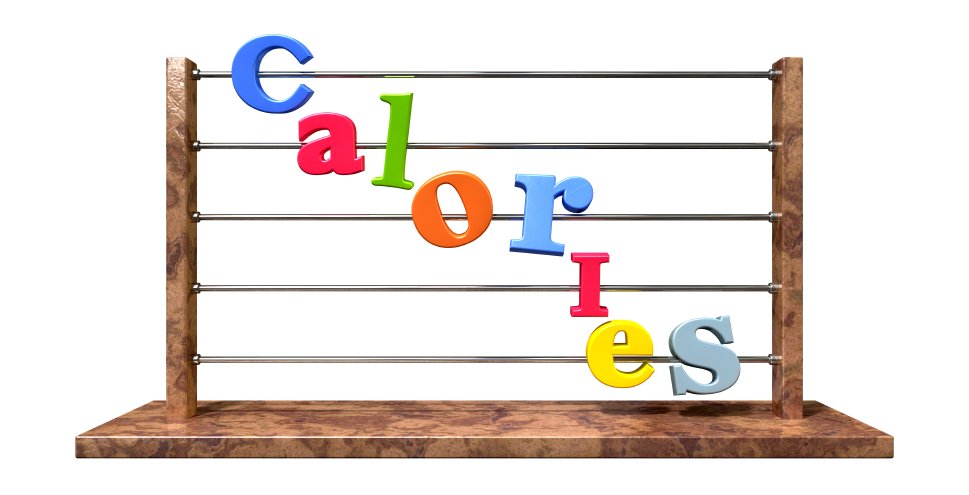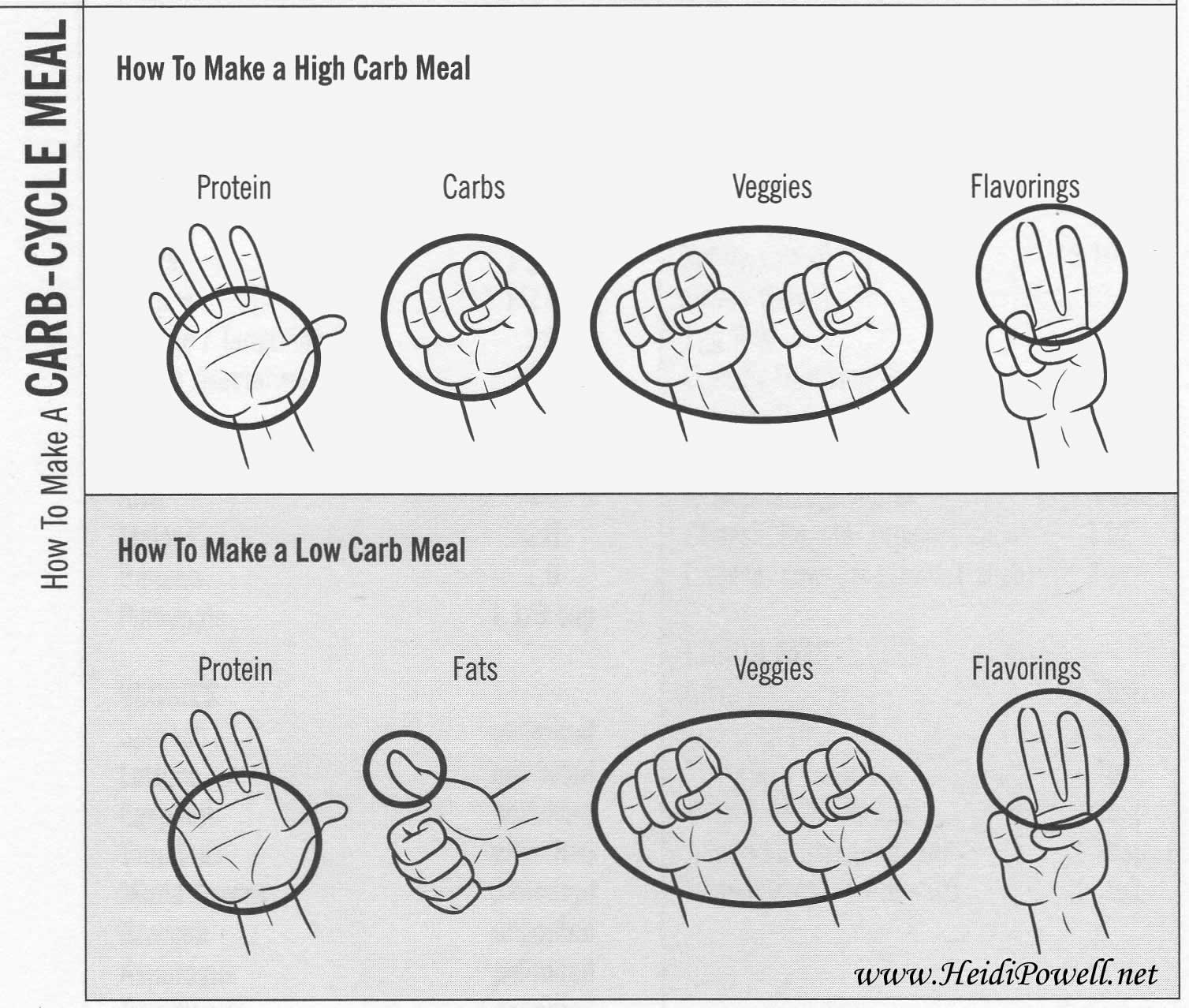You’ll find them in 99.99% of everything you eat and drink. They can be your greatest friends or your worst enemies. Eat fewer than you need and you lose weight. Eat more than you need and you gain weight. Yes, it is that simple.
Since calories affect everyone everyday, it?s important to understand them: what they are, what they do, and how to make them work for you instead of against you.
Some basic facts about calories:
- They represent the amount of energy in the foods you eat and drink.
- They are not partial to certain types of foods. A calorie from a carrot is the same as a calorie from a doughnut (although the carrot calorie is much healthier, of course!).
- Different types of foods are automatically higher in calories. Take 1 gram each of protein, carbohydrate, and fat. The grams of protein and carbohydrate each contain 4 calories, while the gram of fat has 9. Yes, that?s more than double the calories gram per gram. Yikes!
- One pound of fat = 3500 calories.
So how do you get calories on your side in your weight loss battle? First of all you need to know your Basal Metabolic Rate (BMR), which is the number of calories your body needs every day just to function properly?to breathe, circulate blood, adjust hormone levels, digest food, grow and repair cells, and so on. While there are several formulas to figure out your BMR, here?s an easy one:
Current body weight x 12 = BMR
150 pounds x 12 = 1,800 calories (BMR)
Simply put, if you eat more than your daily BMR, your body stores those extra calories as fat and you gain weight. If you stay below your BMR, you create a calorie deficit and you lose weight. One caution: women should never eat less than 1,200 calories a day, and men should never go below 1,500. Consuming too few calories sends your body into a protective starvation mode and slows down your metabolism, and a slow metabolism doesn?t burn calories as fast and can cause other problems as well.
There are three basic ways to create a calorie deficit:
- Eat fewer calories than your BMR.
- Exercise, because it burns calories and builds muscle, and bigger muscles burn even more calories!
- A combination of #1 and #2?the best option by far.
Here?s how this works:
- If you create a daily 500-calorie deficit, you?ll lose 1 pound a week.
- If you create a daily 1,000-calorie deficit, you?ll lose 2 pounds a week (remember that cutting too many calories from your diet is not good).
I know, I hear you: ?But Heidi, I don?t like to count calories.? You?re not alone. Counting calories is so not fun. However, it?s really important to know what you?re taking into your body every time you open your mouth. Studies show that most people think they?ve eaten 20% fewer calories than they actually have, so trying to estimate your calorie intake is a recipe for disaster.
Until you have an opportunity to weigh and measure your food to figure what your “correct” portions look like, this simple graphic shows a safe and easy way to choose appropriate portion sizes without measuring cups or a scale. This should also help keep you from creating a calorie surplus:
Some final words of advice:
- It?s important to recalculate your BMR as you lose weight.
- Some calorie tracking apps add the calories you burn from exercise into your daily to-eat total, making it look like you can eat more than you actually can, and if you do eat all those calories, you won?t have a calorie deficit at the end of the day. Instead, eat the number of calories in your daily eating plan, and subtract the calories you burned to see your deficit. Remember: one pound of fat = 3500 calories, so work to eventually create a 3500 calorie deficit.
- You can eat calories much faster than you can burn them, so don?t use those exercise-burned calories as permission to eat more food??I burned 500 calories this morning, so I can eat this cupcake.? So not a good way to do it!
To learn more about our preferred and proven eating and exercise plan?Carb Cycling?check out our book, Choose More, Lose More for Life.



205 Responses
Hello,
I have read somewhere that your weight is 129 pounds, so this would mean that you should be eating 1548 calories a day according to the equation that you gave us in this blog post.
However, I read somewhere that you said that you now normally eat about 2000 – 2600 calories a day….
How is this the case?
Hi Sandy: Heidi’s calories are based on her workout schedule and body composition and not on these general recommendations. The more muscle you have and the harder you work out, the more calories you need to stay healthy and help you achieve your goals. I hope that helps! 🙂
heidi what do you think about a vegan/plant based diet? with all the new documentaries and all these people going plant based i am having troubles really picking a side of what i should stick too. Iv been over weight my whole life, iv been able to drop to a decent weight but struggle with bindge eating. I have been over weight by 100 pounds, lost it, gained it, lost it etc. Im tired of the cycle of up and down.
Do you think a plant based diet is the best route, or to stick to what i have done in the past? Thank you!
Hi Nikki: We believe you should do what you feel is best for your body and your goals. Plant-based works great for some people, but not so well for others. No matter what plan you follow, we recommend making sure you get enough protein every day. You can do this! 🙂
Hey Heidi!! This is Titli. How often should we calculate our calorie requirements during our weight loss programme?
Hi Titli: If you follow any of Chris and Heidi’s carb cycling programs, the daily calories are figured out for you. For the Easy, Classic, Turbo, and Fit Cycles, men eat 1500 cals on low carb days and 2000 cals on high carb days, and women eat 1200 cals on low carb days and 1500 cals on high carb days. For the Extreme Cycle, women eat around 1500 cals/day and men eat around 2000 cals/day. Hope that helps!
Hello I’m Shreen if my Bmr is 1000 calories so I’m supposed to eat 700 to lose weight… Let’s say I choose to eat more 1100 calories and burn in exercise 1160 calories did I achieve my goals… I Wana make sure I’m doing it right ? Cause it’s very hard for me to eat less I get dizzy if I try… Iv been doing this eating like I said more and cutting from exercise I’m losing weight but still frustrated cause I need to know am I calculating right… Plz answer me as soon as you can
Hi Shreen: Chris and Heidi recommend that women never eat less than 1200 calories/day and men never eat less than 1500 calories/day. You can learn more about the nutrition part of their carb cycling program (it’s awesome!) here: https://heidipowell.net/2713. 🙂
I am having a difficult time losing weight. Ive been keeping my calories around 1500 (somedays I can get up to 1600 if I worked out). I am on my 4th week of working out 5 days a week. All of my workouts are pretty intense and either consist of HIIT cardio or weights or both. I went and got a body scan done last week at Nutrishop and it said my BMR is 1535. I am 175 pounds and 27 years old. Going by your equation…my BMR is 2100. There is such a big difference between 1535 and 2100 and I am not sure which one is right. Help me please! I am hoping if I can get my calories right, I Can start to see the pounds come off.
Hi Anna: The BMR recommendation in this post is very generalized since there’s no way to take each person’s body composition into account, so I’d go by the body scan you had done. You might try using the macro calculator in this post (there’s also lots of helpful info in the post), and see if it can help you figure out what calorie range is best for you and your goals: https://heidipowell.net/10990. You’re already doing awesome – you can do this! 🙂
Here is an intersting article about how the biggest losers all leave with significantly lowered metabolisms after the show, to further iterate on my previous comment.
http://www.nytimes.com/2016/05/02/health/biggest-loser-weight-loss.html?_r=0